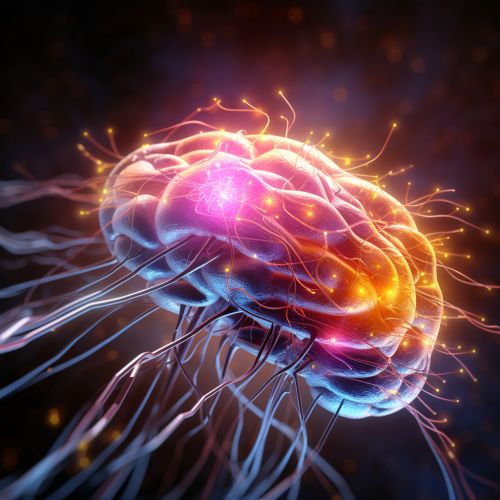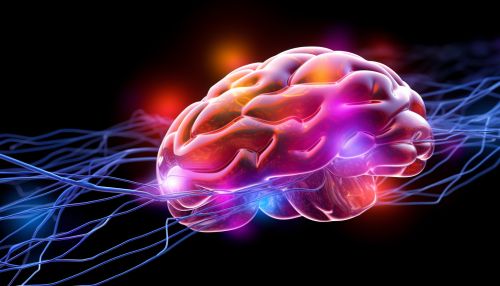Cognitive Mechanisms of Cognitive and Psychological Rehabilitation
Introduction
Cognitive and psychological rehabilitation is a specialized field of medicine that focuses on restoring cognitive functions and psychological well-being in individuals who have suffered from various neurological and mental health conditions. This field employs a range of therapeutic interventions, including cognitive training, psychotherapy, and medication management, to help patients regain their cognitive abilities and improve their psychological health. The effectiveness of these interventions is largely dependent on the underlying cognitive mechanisms that drive cognitive and psychological rehabilitation.
Cognitive Mechanisms
Cognitive mechanisms refer to the processes that underlie our ability to perceive, think, remember, and learn. These mechanisms are crucial in cognitive and psychological rehabilitation as they determine how individuals respond to different therapeutic interventions. Some of the key cognitive mechanisms involved in cognitive and psychological rehabilitation include attention, memory, executive functions, and neuroplasticity.
Attention
Attention is a cognitive mechanism that allows us to selectively focus on specific information while ignoring irrelevant stimuli. It plays a crucial role in cognitive and psychological rehabilitation, as it enables patients to engage fully in therapeutic activities and exercises. For instance, attention training, a common intervention in cognitive rehabilitation, involves tasks that require patients to focus on specific stimuli, thereby improving their attentional capacities.
Memory
Memory is another crucial cognitive mechanism in rehabilitation. It involves the encoding, storage, and retrieval of information. Memory training in cognitive rehabilitation often involves tasks that enhance patients' ability to remember information, such as mnemonic strategies and memory aids.
Executive Functions
Executive functions are higher-order cognitive processes that enable us to plan, organize, and regulate our behavior. They are often impaired in individuals with neurological and mental health conditions, making them a primary target in cognitive and psychological rehabilitation. Interventions aimed at improving executive functions may involve problem-solving tasks, goal-setting exercises, and cognitive flexibility training.
Neuroplasticity
Neuroplasticity, the brain's ability to reorganize and form new neural connections throughout life, is a fundamental mechanism in cognitive and psychological rehabilitation. It allows the brain to adapt and recover following injury or disease, and is the basis for many rehabilitation strategies, including cognitive training and psychotherapy.


Psychological Mechanisms
Psychological mechanisms are processes that influence our thoughts, emotions, and behaviors. They play a significant role in psychological rehabilitation, as they can affect patients' motivation, engagement, and response to therapy. Key psychological mechanisms in rehabilitation include motivation, self-efficacy, and resilience.
Motivation
Motivation is a psychological mechanism that drives individuals to engage in certain behaviors. In the context of rehabilitation, motivation can influence patients' willingness to participate in therapy and their persistence in the face of challenges. Therapeutic interventions often aim to enhance patients' motivation through goal setting, feedback, and rewards.
Self-Efficacy
Self-efficacy refers to individuals' belief in their ability to perform specific tasks. It is a crucial mechanism in psychological rehabilitation, as it can affect patients' engagement in therapy and their ability to apply learned skills in real-life situations. Interventions aimed at enhancing self-efficacy may involve mastery experiences, vicarious experiences, and verbal persuasion.
Resilience
Resilience is the ability to adapt and recover from adversity. It is a key mechanism in psychological rehabilitation, as it can influence patients' ability to cope with their condition and their response to therapy. Interventions aimed at enhancing resilience may involve stress management techniques, cognitive restructuring, and social support.
Therapeutic Interventions
Cognitive and psychological rehabilitation involves a range of therapeutic interventions that target the cognitive and psychological mechanisms discussed above. These interventions are designed to help patients regain their cognitive abilities and improve their psychological well-being.
Cognitive Training
Cognitive training involves structured exercises that target specific cognitive functions, such as attention, memory, and executive functions. These exercises are designed to enhance cognitive performance and promote neuroplasticity.
Psychotherapy
Psychotherapy is a therapeutic intervention that involves talking with a trained mental health professional to understand and manage mental health conditions. It can target various psychological mechanisms, such as motivation, self-efficacy, and resilience, and can be used in conjunction with cognitive training to enhance rehabilitation outcomes.
Medication Management
Medication management involves the use of medications to treat underlying neurological or mental health conditions, thereby facilitating cognitive and psychological rehabilitation. It requires careful monitoring to ensure that medications are used safely and effectively.
Conclusion
Cognitive and psychological rehabilitation is a complex process that involves a range of cognitive and psychological mechanisms. Understanding these mechanisms can enhance the effectiveness of therapeutic interventions and improve rehabilitation outcomes. As research in this field continues to evolve, it is hoped that further insights into these mechanisms will lead to the development of more effective rehabilitation strategies.
